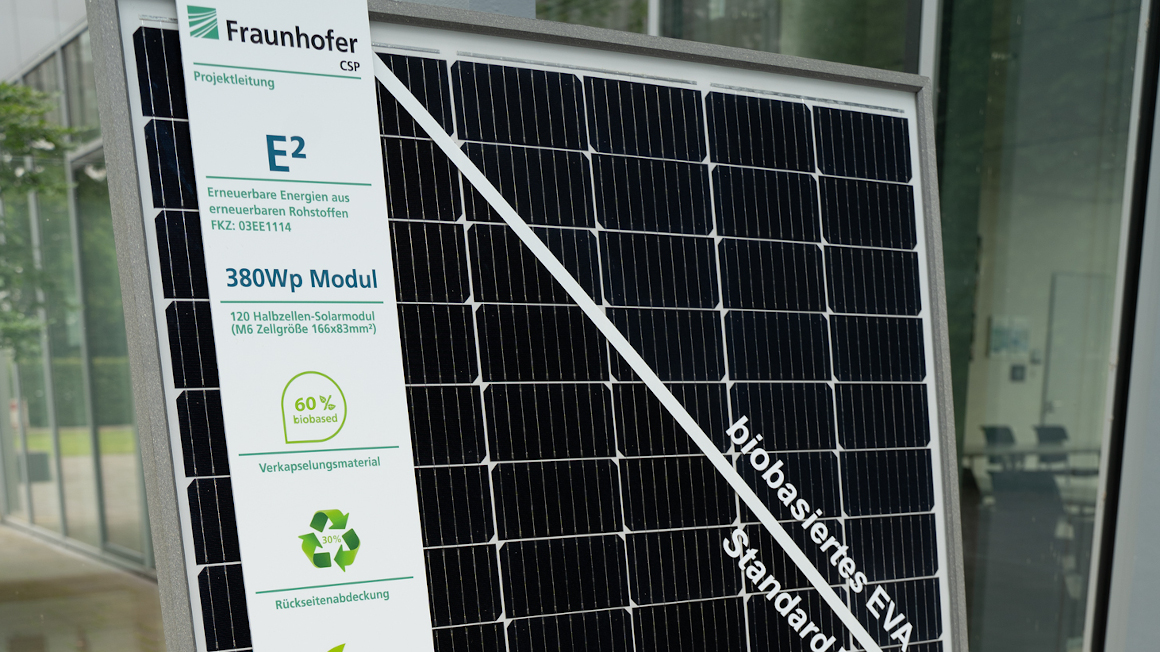The German government has introduced a 'National Sustainability Strategy' with a view to promoting the development of bio-based products by means of funding programmes. Biodiesel or bioethanol as fuel for vehicles, and toys and plastic bags made of maize starch are just a few examples of many. But the path leading from an economy based on mineral oil to one based on sustainable bio-products is not without its obstacles. Especially in the renewable energy sector, it soon became clear that the increasing use of palm oil, maize or wheat to produce bio-fuels is leading to negative social effects, especially in the southern hemisphere.
Rising food prices hit the poor hardest; proliferating plantations mean not only the destruction of forests and the consumption of large amounts of freshwater, but also the displacement of rural communities and the concentration of large areas of land on just a few. As the recently published WWF study on palm oil emphasizes, it is important to keep the global effects of society's move towards a bioeconomy in mind so as to be able to modify national funding strategies.
Young research scientist group in Jena
Together with her team of young research scientists, the sociologist Dr Maria Backhouse at the Friedrich Schiller University in Jena intends to study the effects of the bioeconomy on global social inequalities over the next five years. Their focus will be on the energy sector. "Our assumption is that no social changes, including technological ones, take place in a vacuum, as it were. On the contrary, they are permeated by conditions of social inequality throughout, from the global to the local level. So we are studying how the transformation process towards a bioeconomy affects the unbalanced conditions of the globalized agricultural sector from north to south, but also how it affects local labour conditions and land access rights. We specifically ask: Who profits and who loses out?" says Backhouse.
The 'Bio-inequalities' project has been funded with approximately 2.6 million euros by the German Ministry of Education and Research (Bundesministerium für Bildung und Forschung) as part of the 'Bioeconomy as social change' initiative.
Pivotal effect on social transformation
"The energy sector is of pivotal importance for the transformation of society, and is, therefore, hotly contested," says Backhouse. It is an area that is susceptible to a fair and democratic development process. "This makes it all the more important to grasp it from the point of view of the global inequalities that prevail in order to be able to determine the social effects of the current growth in the bioenergy sector."
The environmental sociologist has spent many years studying the politics of bio-fuel. The topic has been the subject of controversial debate both in Germany and elsewhere. The research findings also differ from each other. In a first step, the young scientists from Jena plan to evaluate these heterogeneous results systematically and from the perspective of inequality so as to build up a foundation for subsequent fieldwork.
Case studies on three continents
The basis of the study is to be provided by case studies from Germany, Brazil, Malaysia and Indonesia. Each of these countries is heavily involved in the bio-energy sector, and each one has its own bioeconomy strategy. "These are regionally embedded studies that investigate the evolution of labour and land access conditions. We shall dovetail them with three studies on global north-south interrelationships dealing with political participation in certification initiatives, technological development as well as trade and investment."
A special feature of the approach is that the six-strong team will be taking a cross-border view. "We want to find out not only what is happening at a local level, but take into account regional factors in order to understand how they interact with each other in a global context," explains Backhouse. The researcher has plotted the following course: Analyse the relationships and interdependencies between the main production countries and link this with the individual case studies on land access and labour conditions.
A contribution to bio-economical change
For instance, how have land access and labour conditions for people, trade and investments changed as a result of palm oil production in Brazil, Malaysia and Indonesia? What knowledge and technology centres have grown up there, what is the stance of the various representatives from politics, business and society in general to certification initiatives, and to what extent are these countries competing regarding technological development or trade? The clarity of these questions is reflected in the aims of the researcher. Backhouse: "We want our findings to contribute towards shaping the bioeconomy.”
Author: Beatrix Boldt


